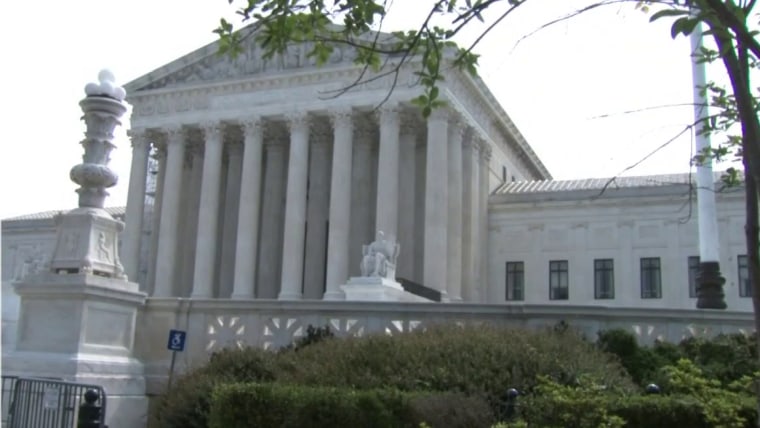Justice Elena Kagan on Friday slammed her conservative colleagues’ decision to invalidate President Joe Biden’s student loan debt relief plan, suggesting they had put politics ahead of case law on a matter they had “no business deciding.”
“The Court’s first overreach in this case is deciding it at all,” Kagan wrote in her dissent from the 6-3 ruling, where she said the states that challenged the policy did not have legal standing to do so.
“Under Article III of the Constitution, a plaintiff must have standing to challenge a government action. And that requires a personal stake — an injury in fact. We do not allow plaintiffs to bring suit just because they oppose a policy,” she wrote.
“The plaintiffs in this case are six States that have no personal stake in the Secretary’s loan forgiveness plan. They are classic ideological plaintiffs: They think the plan a very bad idea, but they are no worse off because the Secretary differs. In giving those States a forum — in adjudicating their complaint — the Court forgets its proper role. The Court acts as though it is an arbiter of political and policy disputes, rather than of cases and controversies,” Kagan wrote.
As a result, “this Court today decides that some 40 million Americans will not receive the benefits the plan provides.”
She said it’s not — or should not be — the high court’s role to set policy.
“The policy judgments, under our separation of powers, are supposed to come from Congress and the President. But they don’t when the Court refuses to respect the full scope of the delegations that Congress makes to the Executive Branch. When that happens, the Court becomes the arbiter — indeed, the maker — of national policy,” she wrote, adding that “is no proper role for a court. And it is a danger to a democratic order.”
Much of Kagan’s dissent — which was backed by Justices Sonia Sotomayor and Ketanji Brown Jackson — focused on the majority’s finding that Missouri had standing to challenge the law.
The state claimed it was being harmed by the loan forgiveness plan because it meant the Missouri Higher Education Loan Authority, which Kagan described as “a state-created corporation participating in the student-loan market,” would collect fewer fees.
Kagan, however, noted that the authority is “a legally and financially independent public corporation,” and its losses would not be passed on to the state. She said that the agency had the power to sue but did not, and that Missouri should not have standing because it would not be injured by the loan forgiveness program.
“Under our usual standing rules, that separation would matter —indeed, would decide this case,” Kagan wrote.
“In adjudicating Missouri’s claim, the majority reaches out to decide a matter it has no business deciding. It blows through a constitutional guardrail intended to keep courts acting like courts,” she wrote, adding that by deciding the case, the high court “exercises authority it does not have. It violates the Constitution.”
Kagan also took aim at her colleagues’ rationale in rejecting the Biden administration’s arguments that the loan forgiveness plan was lawful under a 2003 law called the Higher Education Relief Opportunities for Students Act, or HEROES Act.
The law says the government can provide relief to recipients of student loans when there is a “national emergency,” allowing it to act to ensure people are not in “a worse position financially” as a result of the emergency. Chief Justice John Roberts said the HEROES Act language was not specific enough, and that precedent “requires that Congress speak clearly before a department secretary can unilaterally alter large sections of the American economy.”
Kagan countered that “Congress may have wanted the (Education) Secretary to have wide discretion during emergencies to offer relief to student-loan borrowers. Congress in fact drafted a statute saying as much. And the Secretary acted under that statute in a way that subjects the President he serves to political accountability — the judgment of voters. But none of that is enough. This Court objects to Congress’s permitting the Secretary (and other agency officials) to answer so-called major questions. Or at least it objects when the answers given are not to the Court’s satisfaction. So the Court puts its own heavyweight thumb on the scales.”
The majority opinion “departs from the demands of judicial restraint. At the behest of a party that has suffered no injury, the majority decides a contested public policy issue properly belonging to the politically accountable branches and the people they represent.”
Source: | This article originally belongs to Nbcnews.com











